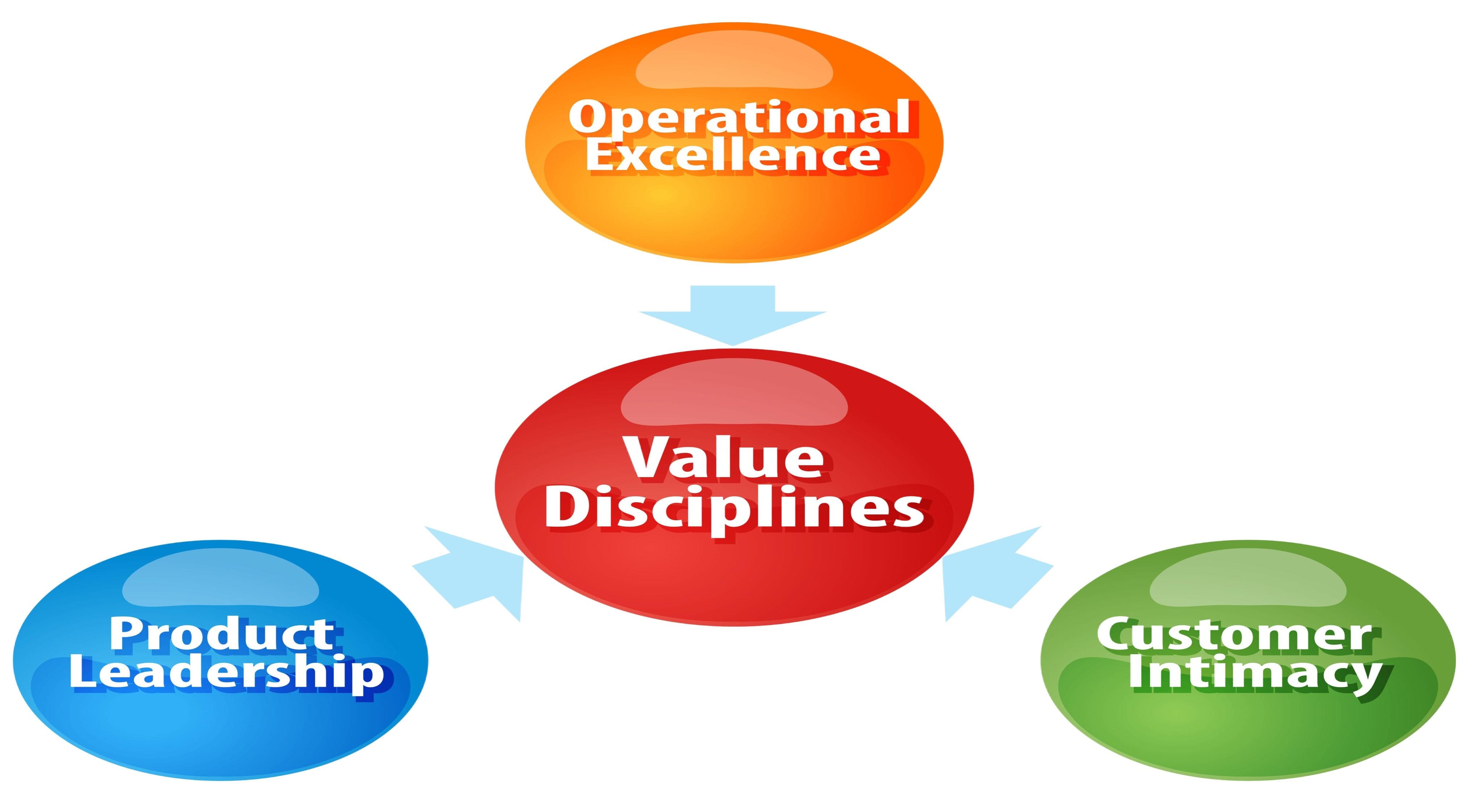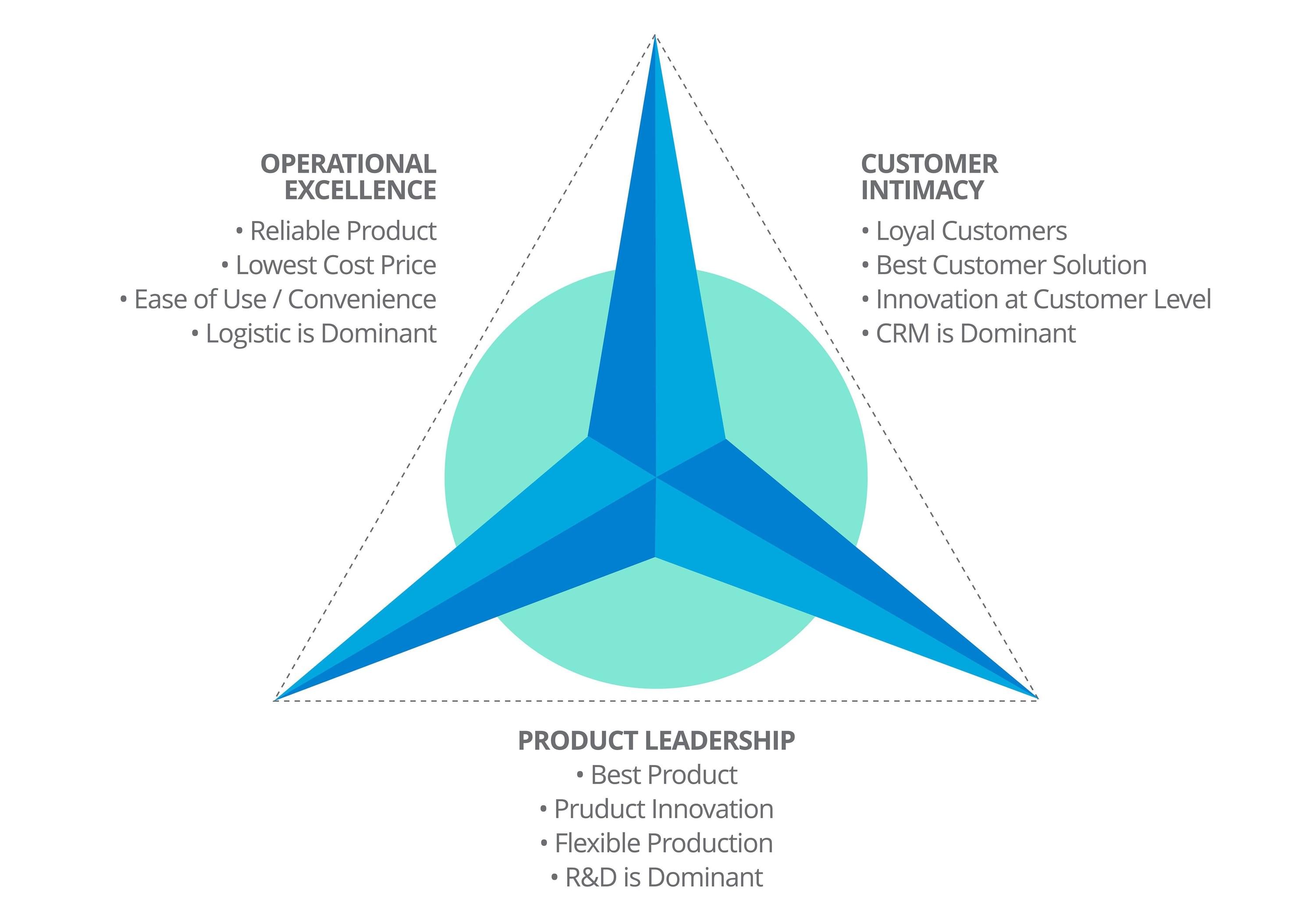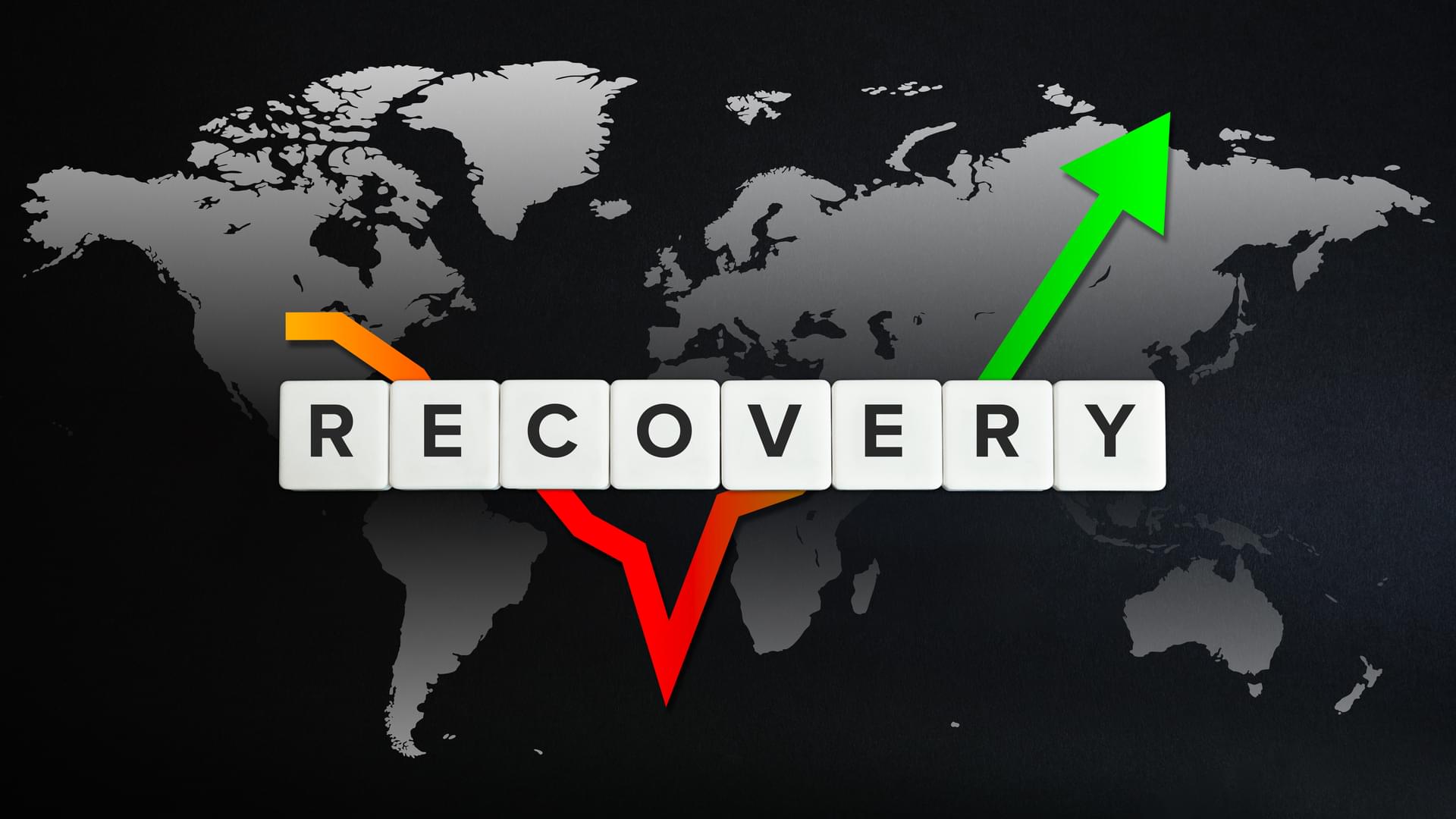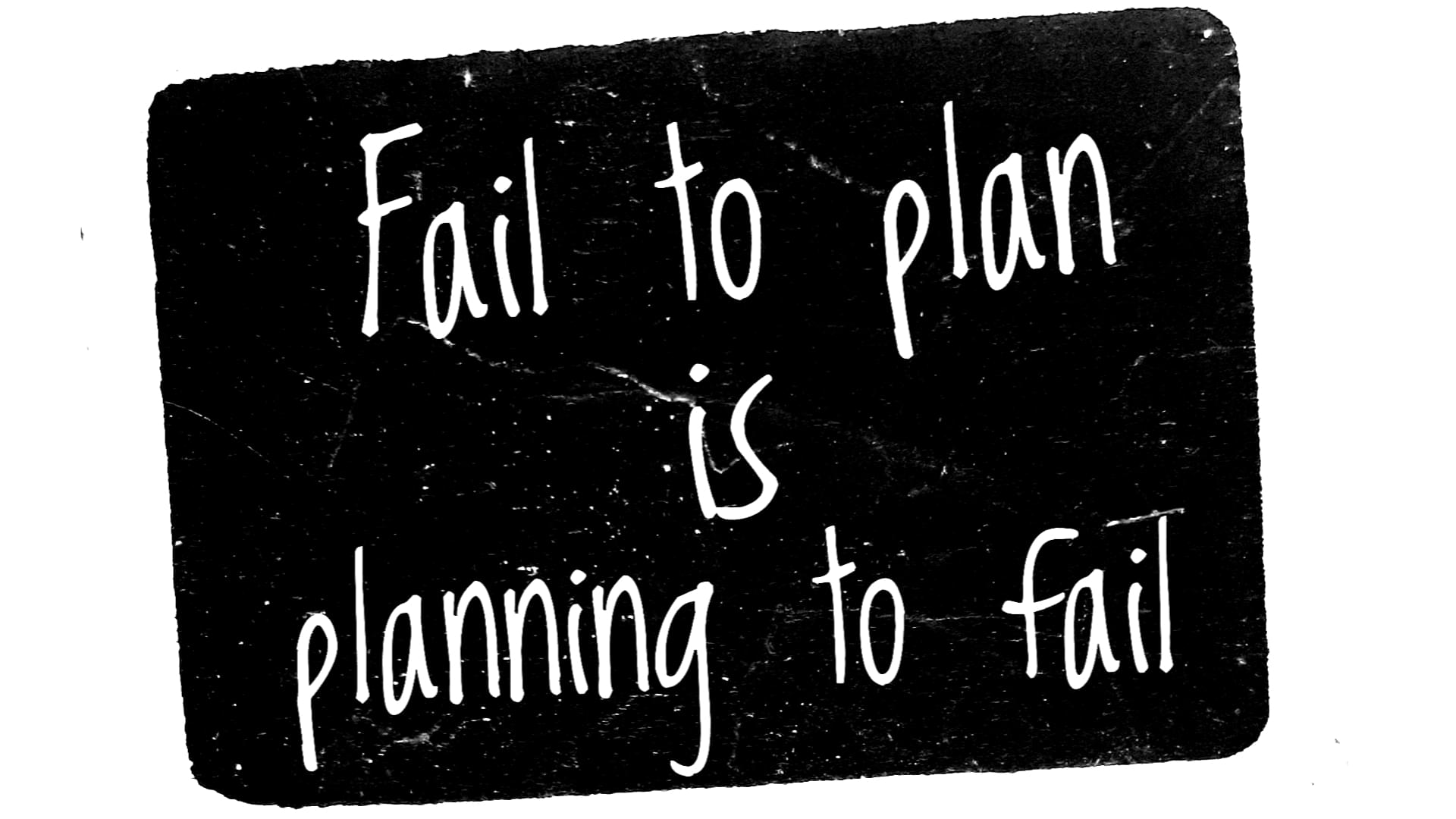2024 New Year Countdown - Time to Plan
countdown
00
Years
00
Months
00
Weeks
00
Days
00
Hours
00
Minutes
00
Seconds
If you don't have a Strategic Business Plan or need to revise your plan, join me as I guide you through assembling a strategic business plan for your company that is leveraged for growth in 2024. Weekly Blogs ↓ , Masterclasses and more.→
Narrow Your Focus— for Growth in 2024
Time to Plan for 2024 - Part 4 of 9
by Marc L Daniels — 22 November 2023 -Volume 249
With your Vision defined, we move forward to
Your Target Market —
Effective companies focus their marketing efforts on appealing to and serving a specific target market customer. Your target market is the center of your marketing, your “bull’s eye.” It’s the sweet spot you aim for with your product & service design and marketing communications.
Many Entrepreneurs and business owners I speak with are confident they know their target market, and they do for the most part. However, that being said, as we enter 2024, I encourage you to review and tighten up your target market — Narrow Your Focus.
When you narrow your focus to a clearly defined target audience, your business strategy and marketing endeavors will be more effective.
- First, you will spend less marketing dollars.
- Secondly, your marketing will drive greater returns.
Most importantly, your target market is a foundational component of your overarching strategic plan. Tightening up your target market will provide context to many of the decisions and projects you create for growth in 2024.
So, how do you tighten up your target market? Use my Target Market Workbook (for free) — Just 42 Questions that will help you define and tighten up your target market for growth in 2024.
Final Thoughts:
When you have a straightforward target market customer in mind:
- Your product & service design has more clarity & focus – because you know who you are building it for.
- Your customer communications are more effective – because you know who you are talking to.
- Your target customer perceives you as the expert in meeting their needs – they can clearly see that “This organization is talking to me.”
Next Week:
Your Value Discipline

Build a Winning Team for Success— with Core Values
Time to Plan for 2024 - Part 3 of 9
by Marc L Daniels — 15 November 2023 -Volume 248
Over the last few newsletters, I have focused on the Vision of your company:
• Why your company does what it does? — Your Core Purpose
• Where do you want to get to with your company? What is your dream or Big Hairy Audacious Goal — Your BHAG
This week, the final component of the Vision is Your Core Values.
• Who do you want on the journey with you? What are the values you want them to exemplify? Your Core Values
Core values are a critical component of building a winning team for success. Looking back over my forty-four-plus years in business, building a team aligned with the company's core values has been paramount to its success.
Core Values are the behaviors that define your culture. Core Values are clear statements of how you expect every person in your organization to act, regardless of their role. Core Values provide a moral compass for your people. They can help your people to decide on the right course of action, irrespective of the challenge they face.
Core Values are not the descriptions of our work or the strategies we employ to accomplish our mission. Core Values underpin our work. They define and guide us on how we interact with each other, the public, our prospects, and, ultimately, our customers. Core Values create alignment between employees and company goals.
There are no studies I'm aware of about the profit-building power of values per se, but there are plenty of studies about the influence of culture. Culture is the collection of internalized rules of behavior for the people in your company. Those rules form the basis for your Core Values. By identifying your Core Values and making them explicit, you shape your culture.
That's important because your Core Values and culture do several things for your company. Your Core Values provide a moral compass for your people. They can help your staff decide on the right course of action, regardless of the challenge they face. Your Core Values establish a basis for consistent decision-making by everyone. People who share the same Core Values tend to make decisions using the same principles.
Here's the catch – simply writing down some rules and turning them into a statement of Core Values doesn't work. Your Core Values must be unique to your company and reflect the values you have and strive to live. It's not an ambiguous and generic word like "integrity." It must clearly state, "Here's how we do things around here."
In an interview with AirBnb co-founder Brain Chesky, he went through Airbnb's core values, "Golden Rules," in detail.
• Be A Host: "Serve others so they feel they belong. We stretch our empathy until our guests feel 100% appreciated. Everyone is a guest."
• Champion the Mission: "Create a global experience of belonging for anyone, anywhere. Those who work for it, in, or around Airbnb, agree to Champion the Mission by living it."
• Every Frame Matters: "Think holistically. Execute with obsession to detail. Success is measured by pride, not credit."
• Be a "Cereal" Entrepreneur*: "Everyone is creative. Think scary big. Volunteer for impossible situations. Get shit done."
• Simplify: "In every complex, impossible situation, we so clearly define the outcomes that all distractions are eliminated."
• Embrace The Adventure: "We have fun, welcoming uncertainty. We master chaos through flexibility and youthful curiosity."
I love seeing Core Values so well articulated. It is so important for employees, subcontractors, prospects, and customers to see core values that are not just a few words of aspirations but so clearly defined.
* Please take special note of Be a "Cereal" Entrepreneur. Cereal is not a misspelling. Airbnb's creative solution to funding woes was "Cereal" boxes. They created their own limited-edition cereal brands, Obama O's and Cap'n McCain's, and sold them online for $40 each, marketed as a way to support their favorite candidate and get a free night at an Airbnb listing. Also, note how this core value has included an element of BHAG thinking— "Think scary big. Volunteer for impossible situations."
If you've been in business for a while, you've probably already developed some unwritten golden rules, "the way we do things around here" that you'll sharpen into your Core Values later. In the meantime, here are some questions I want you to ask you to answer and think about before you write or refine your core values:
• Who in your company is a living example of the right behavioral standards?
• What is your company known for?
• What behaviors are so important that you'll fire* anyone who doesn't consistently demonstrate them?
Final Thoughts:
Are you Building a Winning Team for Success? Start by ensuring your core values are clear and articulated so everyone understands how they apply to them. When you hire an employee, use your core values as a litmus test. A good resume, a DISC profile, a top grading, or a reference are all viable hiring tools, but my experience has taught me that they are all for naught if your new hire is a bad hire, if they are not aligned with your core values.
Next Week:
We begin working on your Strategy and refining your Target Market.

Dare to Dream Big
Time to Plan for 2024 - Part 2 of 9
by Marc L Daniels — 8 November 2023 -Volume 247
"Dare to dream big; only big dreams have the power to move men's souls."
— Marcus Aurelius (121-180 AD)
"
Dare to Dream Big", said Roman Emporer Marcus Aurelius — Nearly 2000 years later, in their book Good to Great - Jerry Portis and Jim Collins coined the phrase "BHAG," an acronym for Big Hairy Audacious Goal. But it is nothing new.
Marcus Aurelius was spot on: BHAGs "have the power to move the souls of men" (and women, as added by me, Marc Daniels).
Bill Gates said this at a news conference in 2006. — "When Paul Allen and I started Microsoft over 30 years ago, we had big dreams about software. We had dreams about the impact it could have. We talked about a computer on every desk and in every home."
Let's review through some classic BHAGs:
• Ford — 1903 Henry Ford "Democratize the automobile."
• Disney — 1934 Walt Disney's "Create a full-length animated feature film."
• NASA — 1961 President John Kennedy, "This nation should commit itself to achieving the goal, before this decade is out, of landing a man on the moon and returning him safely to Earth."
• Nike — 1967 Phil Knight, "Crush Adidas"
• Microsoft — 1980 Paul Allen and Bill Gates, "A computer on every desk and in every home:"
Now, how some have changed over time:
• Ford — Transform from an automotive company to a mobility solutions provider.
• Disney — Be one of the world’s leading producers and providers of entertainment and information.
• Nike — To be the number one athletic company in the world.
• Microsoft — Empower every person and every organization on the planet to achieve more.
And a few special ones for my entrepreneurial women followers:
• Spanx — Sara Blakely — (Founder) To invent a product that I can sell to millions of people that makes them feel good.
• 23andMe — Anne Wojcicki (Co-Founder) Change healthcare by empowering the patient to own their data.
• Arria — Sharon Daniels (Co-Founder) Connect the data-sphere to humanity by giving It the power of language.
Now, some recent ones:
• SpaceX — Enable human exploration and settlement of Mars.
• Airbnb — To create a world where anyone can belong anywhere.
• Tesla — Accelerate the world’s transition to sustainable energy
• Uber — To make transportation as reliable as running water for everyone, everywhere.
Today, the BHAGs are taught in MBA Business School coursework. Business consultants and coaches globally teach their clients the importance of using them to motivate businesses to achieve massive success.
A BHAG is a visionary and compelling goal for the next 10–25 years of a company. It should feel intimidating, perhaps slightly impossible, but be achievable if the company puts forth its best efforts.
Four factors make up an organization's BHAG:
• Big — The goal is enormous, and it cannot be completed in a year or even five years. The goal should take at least ten years to accomplish
• Hairy — It should be risky since it will require innovation and maximum effort to reach it.
• Audacious — The idea is bold and has the "gasp factor" that makes you stop and think about it.
• Goal — Goals need to be measurable, even if they are BHAGs.
A BHAG is not just for you, though... While "becoming a millionaire" is an admirable goal for you, it will not excite the average employee. However, a goal like "we will build a human settlement on Mars" will excite them, and they will want to be part of the project. I love seeing the enthusiasm of SpaceX employees after a successful launch: smiles, hugs, and high-fives!
So what is your dream? What is your company's dream, and can you write a BHAG that will excite your employees?
Final Thoughts:
Developing a BHAG is a foundational component of your Vision and your overarching Strategic Plan. As your company grows and progresses, the possibilities are truly endless. So, as Marcus Aurelius said, "Dare to Dream Big"
So, what is your Big dream? What is your company's dream, and can you write a BHAG that will dare to excite your employees?
Next Week - The final component of the Vision component of your Strategic Plan- Your Core Values.

Start Your 2024 Plan with "Why..."
Time to Plan for 2024 - Part 1 of 9
by Marc L Daniels — 26 October 2023 -Volume 246
"Everything, a horse, a vine, is created for some duty.
For what task, then, were you yourself created?
A man's true delight is to do the things he was made for"
— Marcus Aurelius (121-180 AD)
-
Why does your organization exist (beyond making money)?
-
What is your organization passionate about?
-
What difference are you trying to make in the lives of the people your organization touches?
-
What is the "essence" of what you do for your customers?
The answer to these questions should provide a good representation of the essence of what your organization does for people and why you exist, and that's great. Now, I want you to crystallize your reason "why" into a clear, concise statement. Take just a moment to write or re-write Your Company's Core Purpose Statement for 2024. It is an important foundational block in creating your overarching strategy over the next several weeks.
Next week, I will continue with your Company's Vision — Where do you want to go, and what is your BHAG—Big Hairy Audacious Goal?
Just 80 Days Until the New Year
Time to Plan for 2024
by Marc L Daniels — 12 October 2023 -Volume 245
Yes, it's that time of year, with only 80 days until 2024. It is time to plan and create a strategy to make 2024 a year of growth for your company.
"He who fails to plan is planning to fail." — Winston Churchill.
And it's true... 25% of enterprises without a plan fail within the first two years of operations. And 50% within five years.
The number one reason businesses fail... NOT HAVING AN EFFECTIVE STRATEGIC BUSINESS PLAN.
Now consider what happens when you do have a plan... 71% of fast-growing companies have a strategic business plan.
This year, I aim to help 1,000 Entrepreneurs ensure their company has a plan. Therefore, my 80-day countdown has started.
Over the next ten weeks, I will step through the essential steps to assembling a plan. But not just any plan — a plan for growth in 2024. I will share my learnings with you and how I have taken companies from zero to millions.
Next week, I will cover step one... Your Core Purpose
Have the Summertime Blues?
We have the cure!
by Marc L Daniels — 24 August 2023 -Volume 244
Hard to believe it's the end of August— Do you have the Summertime Blues?
Has your company hit the targets that you set way back in January? If not, as the summer winds down, it is an ideal time to step back, reflect on the first eight months of the year, and refresh your focus for the final four.
Also, it doesn't matter if you didn't do any formal planning at the beginning of this year. A Business review and the resulting strategies are paramount to your success and growth regardless of when it is done.
It's also okay to catch up on your goals and action plans. A review allows you to do a reset.
What should be included in your August Business Review?
In your review, you reflect on the last eight months of the year. As the leader of your company, this is when you put on your CEO hat. A review will clarify what has worked well and what has not worked well. Then you'll make some decisions about the last four months of the year.
If you have a team, you'll likely want to include them in the process.
During your review, you'll step through the annual goals and objectives you set at the beginning of the year. If you did any formal business planning, pull those plans out so you can refer to them.
Review your Strategy
Focus on your strategies. What has worked well, and what has not? It is optimal time to perform a SWOT Analysis (Strengths, Weaknesses, Opportunities, and Threats), or if you are looking for rapid growth in the last four months, I recommend my adaptation of traditional SWOT called a SWaTOL4™. This approach focuses on removing obstacles and leveraging emerging trends.
Strategic Projects and Goals
Based on your SWOT or SWaTOL4 analysis, review and reset your strategic projects and goals.
• Are your initial goals still relevant?
• What have you accomplished so far?
• Have any milestones been missed? Why? What was the roadblock or issue, and what needs to happen to get it back on track?
• Are any new priorities asking for a new strategic project?
Cash Flows and Budget
Regardless of your specific business and situation, there are some crucial points you need to consider:
• Any collection issues that need attention? · Are you on track to meet your target income?
• Are your expenses being managed appropriately?
• Is it time to raise your rates?
• If you're struggling, consider reducing your business expenses, revamping your offerings, or adjusting your marketing activities.
Plan Rollout and Executive Team Meetings
As you return from those August vacations, communicate your newly adjusted plan to the company to build excitement and drive engagement. Finally, ensure you get in the cadence of a weekly executive team meeting to review your weekly strategic plan, ensuring you are hitting your milestones, checking your KPIs (Key Performance Indicators), and on track with your growth goals every week.
Want some additional guidance?
Attend my End the Year with Growth Workshop (see sidebar) ➞
Special Note: To my southern hemisphere readers... I know it is not summer there, however if you are from Australia or New Zealand, keep an eye out for some exciting workshops for your region coming up soon!

Meeting Madness
Make Your Meeting Matter!
by Marc L Daniels — 9 May 2023 -Volume 243
-
If You're Not Early, Then You Are Late: Being late, you are showing no respect to the other meeting members. Once, I was 5 minutes late for a meeting, and Bob had locked the door. I had to knock to get in. He let me in and said, "If you're not early, you are late! Please be on time next week." It sounds harsh, but he taught me the importance of timeliness and later explained the cost of having employees wait for a meeting to begin. I was rarely never late for a meeting again.
-
No Agenda, No Attenda: I was running a new division for Varityper, and Bob asked me if he could attend one of my meetings. "Of course," I replied. He walked into the meeting early and asked to see a copy of the agenda. I replied, "Bob, I don't have an agenda for this meeting." He stood up and said, "No Agenda, No Attenda!" He walked out. He leaned back in through the door frame, and with a devilish smile, he said, " I'll be back next week; please have an agenda."
-
Come Prepared: At another meeting, I made a statement about something very controversial. Bob asked, "Do you have the data to back that up?" I replied, "No, but I can run a report for you." He paused and said, "We will pick this up at our next meeting. Next week, please come prepared.
So you might think Bob was a harsh leader, but his comments typically came with a smile; he was my mentor, and I will always hold him in admiration for the lessons he taught me. The Three valuable lessons he taught me are now part of my "7Ps of Productive Meetings." I'll teach you all seven in my upcoming Masterclass, including how to keep the HiPPO out of the room! End Meeting Madness and
Make Your Meetings Matter!
See the sidebar for FREE Masterclasses →
Has Your Growth Plateaued ––––––––––– ?
How To Fix It ↗︎
Marc L Daniels — 25 April 2023 -Volume 242
State your company's Core Purpose, why you exist, and the difference your organization is making in the world.
State your company's Core Values.— Do a shout-out to every member at the Strategic Planning review meeting and give an example of how they exhibited an action aligned with your core values in the last period.
— Revenue Targets achieved?
— Gross Profit Targets achieved
— Net Profit Targets achieved
— Cost Reduction Target (if any) achieved.
— Has BHAG progress been acceptable?
— Do we still have our Target Market succinctly defined?
— Did our total number of customers/clients grow?
— Retention rate - Did we retain our existing customer base?
— What went well?
— What went wrong?
— What Strategic Initiatives were completed?
— What Strategic Initiatives still need to be completed?
— What initiatives had marginal success?
— This is used to gauge external factors that could impact a company's profitability.
— Keep your PEST in mind as you pick your Strategic Projects. (see step 9)
— Perform a SWOT analysis (Strengths, Weaknesses, Opportunities, and Threats)
— Perform a SWaTOL4 (Strengths, Weaknesses, and Trends, Obstacles - Leverage 4)
NOTE: This approach is what I use to grow companies rapidly by identifying new trends and then Leveraging the results of the analysis with 4 Strategic Projects. Based on your SWaTOL4, identify potential opportunities or projects.
— Align one project with your Strengths - "a sure bet."
— Then pick one that will mitigate or eliminate a Weakness.
— Identify a Trend project that has the potential to drive rapid growth.
— The biggest Obstacle you face. — "The Obstacle is the Way."
Create a strategic project that steps you around or directly through an obstacle.
NOTE: I recomend that most Strategic Projects are quarterly, with a precise end date. However the "obstacle" Project could be longer, six or nine months, or even a year.
Build a Culture to Win
Create an environment of Pride, Strength, and Unity
Marc L Daniels — 7 March 2023 -Volume 241
The haka is a ritual performed before every All Blacks Rugby game in New Zealand. Traditionally a ceremonial Mojari War dance or challenge, a group performs the haka as a ritual and represents or displays a tribe's
Pride, Strength, and Unity.
Several years back, I was at a friend's house in New Zealand to watch an All Blacks game, and he shouted, "everyone, please be quiet; come over to the TV. It's time for the haka." We stood around the TV— I had never seen anything like this. They were fierce and looked intent and certainly unified about winning the game. They did win; over their entire history, amazingly, the All Blacks, have been victorious in 76% of all their matches. - That says something about the power of Rituals.
Now let's define rituals; they are anything but passive, and they move you into action. Rituals help you enjoy the journey and provide a sense of purpose for you, your life, your family, your team, or even your company. They offer a sense of direction and time out from your everyday routine.
How do you use a ritual to advance your company culture?
What's Your Game Plan?
Does your plan need an adjustment?
Marc L Daniels — 22 February, 2023 -Volume 240
This past Sunday in the US was one without American football — The end of the season came last week with Super Bowl LVII, and it was a thriller. The sports analysts and Vegas bookies favored the Eagles, but yet the Chiefs won. How?
Well, I'm no football analyst— but I am a Strategy Execution Coach. Obviously, an advocate of strategic planning, and I am very aware of the rapidly changing business environment we live in. Strategic Planning is not a yearly one-and-done event It is an interactive process that must be adjusted as each quarter evolves. This brings me to my football analogy— Coach Andy Reid's masterful Game Plan and the ability to adapt the plan mid-game that helped the Chiefs to win the Super Bowl. The Chiefs went into the locker at halftime trailing 24-14. The offensive coordinator showed the players what had beaten them in the first half. They adjusted their plan. Quarterback Mahomes addressed his teammates — and other teammates spoke alongside him — he fired them up. They adjusted their attitude.
I frequently write about the importance of having a plan— and how the lack of a plan frequently leads to business failure. But, this week, I want to stress the importance of a weekly leadership meeting where you review progress towards your strategic initiatives. During the weekly meetings, it is essential to acknowledge success and make adjustments when a strategic initiative or project is off course. You also have to keep your team excited about the execution of your strategic plan — fire them up!

No Agenda? — No Attenda
Make Your Meetings More Productive
Marc L Daniels — 1 February, 2023 -Volume 239
Fifteen percent of an organization's collective time is spent in meetings. In surveys done with managers after they've left meetings, sixty-seven percent rated them as ineffective, and 92 percent admitted to multitasking during them.
And since the pandemic, I've seen a further deterioration of meaningful meetings. With the lack of in-person office contact, online meetings became the norm, frequently held just to see the team. They often lacked a clearly defined meeting purpose, often had no agenda, were late joiners, frequently multi-tasking by attendees, and often without data being properly presented or shared.
Online or in person, how can you improve your meetings and make them more productive? I recommend you follow the 5Ps of Productive Meetings.
The Five P's of Productive Meetings
Let's step through each of these; Purpose, Preparation, Process, Participation, and Progress.
The key takeaway of this blog: Follow the 5-Ps of Productive Meetings, whether face-to-face or online, for all your meetings. — Make Your Meeetings Matter!
Acceleration During Crisis
Marc L Daniels — 24 January, 2023 -Volume 238
Now is not the time to slow down! - It's time to put the pedal down and make this your best year ever.
Two-thirds of all chief economists have sounded the recession alarm for 2023. The global pandemic, then inflation, and now the probability of a recession have intensified existing trends, widening the gap between those at the top and bottom of the power curve of economic profit. Will your strategy keep you ahead of the accelerated pace of change?
Now is not the time to slow down because every financial crisis creates a vacuum, and in that void, new opportunities are created. How can you identify these trends, create a strategy, and leverage them to make 2023 your best year ever?
A good place to start out is with a modification of the standard SWOT analysis that I can a SWaTOL™. Most of you are familiar with a SWOT analysis. It is an acronym for Strengths, Weaknesses, Opportunities, and Threats. The SWOT analysis was created over 60 years ago by Albert Humphrey at MIT. It is used by many companies during their yearly and quarterly strategic planning process. However, if we look back over the most successful rapidly growing over the last 1/2 century, they did not get there by identifying threats. They frequently got there by riding the wave of a new emerging technology or trend.
So while it is always good for the company to be aware of potential external threats, we know with relative certainty what they are; inflation and recession.
So that is why I recommend putting the pedal down and accelerating your growth through the crisis by identifying trends using my SWaTOL™
So what is a SWaTOL? It is an acronym for Strengths, Weaknesses, and then Trends, Opportunities, Leverage.
Strengths — First, make a list of all your strengths. The most common response that I receive is "our people." That is obvious; however, I do not expect a company to hire crappy people, so if you are going to list your people, state what is strong about them. Likewise, if you state your offering or product, say what makes your offering so strong.
Weaknesses — Now make a list of Weaknesses. Typically I get a short list or minimal response on this segment. But there must be areas you are weak. They could be Website, Social Media, Customer Service, Employee Training, Staffing, and Employee Culture- Think, and you will find them.
Trends — Companies grow when they identify an emerging need, technology, regulation, or requirement. Make a list of emerging trends in the world, your country, your industry, and your offering. It can be challenging but give this some time. When you find them, they can be quite magical and drive amazing growth
Opportunities — Now list all the opportunities that the above lists could address.
- Opportunities that align with your Strengths
- An opportunity to address a Weakness.
- A Trend that will create an Opportunity for growth.
Create three strategic projects for the next quarter; The first should align well with one of your Strengths, the second should mitigate or eliminate a Weakness, and the third project leverage a Trend and drive growth.
Do This EVERY Quarter! - You will grow; the project that aligns with a strength is a sure bet. Addressing a weakness every quarter will make you a better, stronger company better poised to retain customers and grow. And while you may not always find that trend, if you go through this exercise every quarter, you will eventually find one that drives magical rapid growth. It's worked for me for 44+ years of growing companies.
The key takeaway of this blog: Economic Crisis creates new Trends or Opportunities, and Trends — Do a SWaTOL every quarter find a
Trend and grow!

It's Not Too Late!
Marc L Daniels — 11 January, 2023 -Volume 237
So here we are, just eleven days into the new year;
— Do you need Plan for 2023?
— Or you had a plan last year but wished it was more Strategic.
— You may even have had a Strategic Plan but failed to Execute it.
If any of the above describes your company, you are not alone. Research studies give us this insight.
— Only 41 % of companies have a yearly Plan
— Only 23% of companies use a formal strategic planning process
— Only 10% of companies Execute their Strategy.
Just one more statistic, 71% of fast-growing companies have strategic plans. With only 11 days behind us and 354 days to go, there is still time. It's still possible to put together a strategy for growth in 2023.
What is a strategic plan? Strategy is an exercise where you define your vision, get clear on your target market, your offering or service, and understand your strengths, weakness, trends, and obstacles. Then you define goals and actions that will take you from where you are now to where you want to be.
One of the outcomes of developing a viable strategy is defining goals. You must have clearly defined goals and carefully chosen tactics that support those goals. You also need to be able to gauge your progress against your goals and make regular adjustments to your tactics and Strategic Plan.
I've seen too many clients need clarification on strategy versus goal setting. They are not the same thing, and it's essential to understand their differences;
— Strategy is an exercise in understanding the problem and the solution or value you bring to your target market. The problems that a well-thought-out strategy is focused on solving are how you will gain market share or differentiate yourself and your content in the marketplace.
— Goals are a measure of progress. Goals support the strategy. Goals that support the strategy are critical but do not solve problems. Tactics are the steps you take to realize your goal.
Then comes the challenging part, the Execution of the goals. As I often say, "Strategic Planning is essential to success, but the Execution is worth Millions."
So there you have it— the Building Blocks of a Strategic Plan.
Vision; Your Core Purpose, Core values, and your 10 Year Target Result
Strategy; Your Target Market, Value Dsciciple, Strategic Position, Ky Benefits, and Brand Promise
Execution; SWOT Analysis, Goals, and Tactics
It's Not Too Late! - If you do not have a Strategic Plan for 2023, now is the time to put one together!
The key takeaway of this blog: 71% of fast-growing companies have a Strategic Plan and it's not too late to put together a plan.

What are Your Key Benefits?
Marc L Daniels — 16 December, 2022 -Volume 235
Features are facts about your brand. Benefits are what these things mean for your customer. Most companies sell features, but people buy benefits. Great marketing sells benefits. Your key benefits should be relevant and compelling. When you deliver on those benefits, you create superior value. There are three kinds of benefits you can use to create that value:
Functional benefits - describe what your product or service does for your customers. These are your offering's attributes, or "the service or solution to be offered."
Economic benefits - describe what your product or service means to your customers in terms of time or money. Economic benefits appeal to your customer's heads, their rational part.
Emotional benefits - describe how your product or service makes the customer feel. Emotional benefits appeal to your customer's hearts, which is why they are the most potent.
Let's use Nike Sneakers as an example to illustrate these benefits;
First, Functional benefits; these are reasonably evident; they are shoes, a necessity for all. However, Nike segments its product line across many personal interests, such as running, cross-training, walking, and more. By using this segmentation, they have functional benefits across many customer segments.
Economic benefits; Nike uses a value-based pricing strategy to set its prices according to consumer perceptions about the value of the company's products. The company can determine its product prices, uses competitive prices and set attractive prices for different market segments according to its market dominance. Economic benefits appeal to your customer's heads, their rational part.
Another economic benefit is healthy living— and this leads me to the emotional benefit of Nike —
Emotional Benefit; Nike's "Just do it" campaign is one of the most iconic marketing campaign examples. Nike launched the campaign in 1988 and featured professional and amateur athletes sharing their accomplishments and inspiring viewers to do the same. One of the first television advertisements for the campaign featured an 80-year-old marathoner named Walt Stack, a dedicated athlete who runs 17 miles every morning. Functional benefits - describe what your product or service does for your customers.
After the campaign went live, thousands of people submitted personal stories about times when they decided to take the leap and "just do it," from quitting their stagnant jobs to losing over a hundred pounds. The line became Nike's emblematic tagline and continues to represent the brand.
What made this marketing campaign successful?
Nike identified an emotional connection with its audience and connected meaningful stories to its core values, like motivation, inspiration, and healthy living. Nike's decision to integrate the company's value proposition with an emotionally-driven message made for a wildly successful marketing campaign.
Critical Takeaways as you put together your strategy for 2023:
Align your strategy with selling benefits, not features. Looking at your target market, clearly define the Functional, Economic, and Emotional benefits your offering provides for your target market.
Read next week's Strategy Execution Newsletter — I will review the creation or refinement of your Brand Promise. It is derived from and supported by your three Key Benefits. .
Who are You?
Marc L Daniels — 8 December, 2022 -Volume 234
Do you have a Strategic Positioning Statement?

What is your Value Discipline?
Marc L Daniels — 30 November, 2022 -Volume 233
Do you know what game you are playing?
Are you playing to win?
Value Discipline is the way that you deliver value to your target customer. It's also the skeleton of your strategy. You choose a Value Discipline based on who your ideal target customer is and what your ideal target customer values most. There are three generic strategies (Value Disciplines); Operational Excellence, Product Leadership, and Customer Intimacy.
Think about your ideal target customer for a moment, who's right in the center of your bull's-eye. What's most important for those customers?
-
Operational Excellence- Is low cost the most crucial thing for them? Low cost can be low price, but sometimes it's the lowest overall cost of ownership. Sometimes it's the lowest cost of time and irritation because they want an efficient, consistent, dependable supplier.
-
Product Leadership- Does your ideal target customer demand the very newest and best? Is that what's most important?
-
Customer Intimacy- Your ideal target customer may think that a personalized solution or customized product is most important.
Which of these three things do they value most? Remember that every customer wants every benefit, but one of these three "Value Disciplines" is most important to them.
Michael Treacy and Fred Wiersema first described Value Disciplines in their book The Discipline of Market Leaders —The basic premises are simple: "Different customers buy different kinds of value. You can't hope to be the best in all three dimensions, so choose your customers and narrow your value focus. Producing an unmatched level of a particular value requires a superior operating model – a machine – dedicated to just that kind of value."
Your Value Discipline determines your strategic focus.
The basic idea is to compete in a Value Discipline where you can establish a competitive advantage. Deciding on a Value Discipline sounds like a simple and easy process, but it's crucial, and people have strong feelings about it. You're going to pick a single discipline to be your primary Value Discipline.
Look at the following diagram.

What is your Value Discipline?
You want you to commit to becoming truly excellent at one Value Discipline and good enough at the other two. "Good enough" means that you match the industry standard in areas that are not your primary Value Discipline.
Select the one Value Discipline your organization should develop true excellence in - by building an operating model designed to deliver this kind of value in a truly excellent fashion.
Your Value Discipline determines your strategic focus. You build your operating model to deliver this kind of value in a truly excellent fashion.
How your Core Values can drive Growth in 2023
Marc L Daniels — 15 November, 2022 -Volume 232
Over the last three weeks, I have reviewed the importance of having a clear Vision for your company— Your
Why,
Where, and
Who. Now, with a clear Vision and just seven weeks until the new year, it's time to start working on your strategy, which begins with your target market.
Your target market customer is one of the most critical components of developing a sound strategy for 2023 because it provides context for the balance of your strategy. When you get your target market right, everything falls into place.
Effective companies focus their marketing efforts on appealing to and serving a specific target. At the center of your marketing is a bullseye—it's the sweet spot you aim for with all your product and service design in marketing communications.
Now, it doesn't necessarily mean that you'll only sell to these people, but they are who you will target your product and service offerings to. Once you define your target market customer, your market endeavors will be much more effective.
Professor Phil Kotler, from the Kellogg School of Management, said: "There's only one winning strategy. Carefully define your target market and direct a superior offering to that target market."
And that's where you want to start. To win, you must aim for the center—narrow your focus. If you go too broad, you'll be advertising to the masses, it's costly and challenging to build successful business advertising to everybody. As author Seth Godin said, "You want to delight the few to attract the many". You must understand who your target market customer is and narrow your focus.
When you have a clearly defined Target Market:
— Your Product/Service offerings have more clarity and focus.
...Because you know who you are building it for.
— Your Marketing Communications are more effective.
...Because you know who you are talking to.
— Your customer perceives you as an expert at meeting their needs.
...They say, "This company is talking to me."
And they are more likely to choose you.

How your Core Values can drive Growth in 2023
Marc L Daniels — 8 November, 2022 -Volume 231
In this week's Strategy Execution Newsletter, I write about the final component of your Vision, your Core Values.
The Vision you have for your company includes three primary components:
Your Why — or Core Purpose the change you want to make in the world.
Your Where — are you going or your BHAG (Big Hairy Audacious Goal)
Your Who — your Core Values, the type of person you want on this journey with you.
Your Core Values are fundamental and are frequently overlooked as a company creates their Vision. However, they are critical to your company's success.
First, you have to have meaningful core values. Many companies use vague, generic aspirational words to communicate their core values. I googled core values, and it popped up with this list of core values:
– Loyalty.
– Honesty.
– Trust.
– Ingenuity.
– Accountability.
– Simplicity.
– Respect.
– Value-centricity.
And while these are meaningful, sound principles, generic words do not drive behavior. Ironically two of these core values were listed in an annual report of Enron; once a Wall Street darling, it had massive fraud that resulted in a 63 Billion dollar bankruptcy.
Now let us turn to a powerful, detailed core value statement that goes into great detail. "The Kraft Group" thy have just 4 Core Values:
At the Kraft Group, each employee or contributor, regardless of which position they hold, for which company they work, or in which country they operate, should be guided by the following:
1) Think and Act like an Owner
Think and act with an owner's mentality
Keep it simple and innovative
Drive results with an intense work ethic
Pay attention to detail
Be hungry, move faster than the competition
2) Exercise Good Character
Take responsibility for your actions
Be open to new ideas and recognize your challenges
If you have done your homework, don't be afraid to respectfully disagree with management
Be humble and operate with an underdog mentality
Respect and abide by all applicable laws, policies and regulations
3) Be Inclusive and Respectful
Welcome and appreciate diversity
Respect and be sensitive to the environment
Give back to your community
4) Focus on our Products and Customers
Understand and service all needs of our customers
Deliver quality and excellence at all levels with a culture of continuous improvement
Be brand ambassadors
If you worked at Kraft Group and read these, you would know precisely what it means to "Think and Act like an Owner," "Exercise Good Character," "Be Inclusive and Respectful," and "Focus on our Products and Customers." These are powerful Core Values clearly stated and communicated. My daughter, Jessica, worked at Kraft Group several years back in the Marketing Department of the New England Revolution. She shared with me that during their employee onboarding, they invested time stepping through the core values in detail. (Full disclosure- these core values are posted on their corporate website by The Kraft Group, they are proud of them.)
Once you have defined or refined your company's core values, how do leverage them to drive growth in 2023?

In 10 Years — Where Do You Want to Be?
Marc L Daniels — 1 November, 2022 -Volume 230

Find your purpose, and everything falls into place...
Marc L Daniels — `12 October, 2022 -Volume 229
In 1979 I launched Computer Discount of America, one of North America's first Computer Mail Order companies. At the age of 21, straight out of college, I was running a multi-million dollar company.
While I thought I had found my purpose, my company's purpose, "selling lots of computers at a discount"—
I was wrong— I had not found my true purpose!
Life suddenly threw me a curve ball— "Stagflation," and Computer Discount started to struggle.
Stagflation is a term that refers to high inflation that happens simultaneously as stagnation of growth or outright recession. But sometimes, the shocks hitting the economy, rather than coming from changing demand, can come from the supply side: an oil-price shock, say, or a rise in food or other commodity prices.
Sound somewhat similar to some of the economic aspects of our world today? While not quite the same, it shares many similarities. The Fed Rate climbed as high as 19.83 to get inflation in check. But don't get too alarmed— that was extreme. Stagflation is typically accompanied by high unemployment.
With Computer Discount's sales falling rapidly, how could we survive?
With the company struggling, I called a meeting, and in what may have been my first "Strategic Review."; we figured it out! - Our Core Purpose, My Core!
I found our company's purpose— our why, my why!

Are you a Dreamer or a Planner ?
Marc L Daniels — `12 October, 2022 -Volume 228
There are dreamers, and there are planners. When you plan, you can make your dreams come true.

Five Common Causes of Business Failure—
Marc L Daniels — 4 October, 2022 -Volume 227
I read recently read an article that listed the five common causes of Business Failure:
– Poor cash flow management.
– Losing control of the finances.
– Bad planning and a lack of strategy.
– Weak leadership.
– Overdependence on a few big customers.
As I looked at this list, I initially said "yes" as I read each one.
Then it struck me - four of the five listed result from just one cause on the list.
What is it? What is your guess?
Bad planning or lack of strategy!
You see, with a solid strategic plan, you would have addressed the poor cash flow, losing control of the finances, weak leadership, or the overdependence on a few big customers.
A recent survey revealed that around 33% of small businesses have a formal business plan. Is it any wonder so many companies struggle? In fact, very few companies can last very long without one. About 20% of businesses fail in their first year, and a staggering 96% of companies will fail over ten years.
There are benefits to creating a good business plan. These include being able to think through ideas before investing too much money in them and working through potential obstacles to success.
Without a plan, you will be so distracted trying to figure things out as they come up, often too late, that you won't see valuable growth opportunities. You won't have the resources, time, or focus to find ways your business can grow and become or stay successful.
I'm committed to helping companies succeed during these challenging times, and to that point, I'm running FREE Strategic Planning Masterclasses nearly every week until the end of the year.
See the sidebar to find one in your time zone, and make 2023 a fantastic year!
See the sidebar for FREE Masterclasses →
No Plan is a Plan to Fail— Have a Strategy for 2023!
Marc L Daniels — Volume 226
See the sidebar for FREE Masterclasses →
The year is half over— What's the plan now?
By Marc L Daniels — Volume 225
Have you reviewed your Strategic Plan?
PEST Analysis is a management method whereby an organization can assess the major external factors that influence its operation in order to become more competitive in the market. As described by the acronym, those four areas are central to this model.
A comprehensive assessment of the major areas of influence that affect the sector in which an organization is positioned, as well as the organization itself, can facilitate more effective strategic planning. This planning can be undertaken to maximize the organization’s ability to capitalize on conditions as they exist, and to be forewarned of and better prepared for imminent changes, allowing the organization to stay ahead of competitors.
The Political aspect of PEST Analysis focuses on the areas in which government policy and/or changes in legislation affect the economy, the specific industry, and the organization in question. Areas of policy that may particularly affect an organization include tax and employment laws. The general political climate of a nation or region, as well as international relations, can also greatly influence the organization
The Economic portion of the analysis targets the key factors of interest and exchange rates, economic growth, supply and demand, inflation, and recession.
The Social factors that may be included in a PEST Analysis are demographics and age distribution, cultural attitudes, and workplace and lifestyle trends.
The Technological component considers the specific role and development of technologies within the sector and organization, as well as the wider uses, trends, and changes in technology. Government spending on technological research may also be a point of interest in this area.
PEST Analysis can assist an organization in recognizing and thereby capitalizing on opportunities offered by existing conditions in the business environment. It can also be used for identifying current or possible future challenges, allowing for effective planning of how to best manage these challenges.
Check out my free PEST Analysis Workbook.
Allow 15-30 minutes to complete this exercise. It's certainly going to make you think, but trust me, the results will be worth it.
What do you need to stop doing?
By Marc L Daniels — Volume 224
Prune some things off and stop doing them!
Strategy requires making wise choices about what you need to start doing, keep doing, and most importantly, what you need to stop doing!
You need to choose what Products / Services / Activities are Core and Non-Core when it comes to satisfying your ideal target customer and implementing your value discipline.
Everybody tells you what you have to do. But what you don't hear often enough is what you have to stop doing! You should stop doing anything that isn't the best choice for getting the results you want.
The analogy I often give is that you have to seasonally prune an apple or fruit tree to ensure it grows new branches and flowers to bring the optimal amount of fruit the next season. By this, I mean you need to prune some things off and stop doing them to be successful over the long term. For example, do you have a product or service offering that you know will be less relevant in the future, or do you have any ongoing projects or critical initiatives that never seemed to fulfill their original promise?
There are dead projects that you know you need to pull the plug on. However, it's tough— because we want to fix and grow things. It's hard to pull the plug on products and services or projects that are no longer working or something that was successful in the past, but they are not part of the company that you need to create to be successful in the future. You see, business execution requires courage is stop doing non-core activities. Decisions on where you demonstrate authentic strategic leadership— it's easy to keep adding new products and adding new services and starting new projects, but it takes real courage to say no and stop doing things.
I've always liked this quote from Warren Buffett, "the difference between successful people and very successful people is that very successful people say no to almost everything." So what are you prepared to say no to? What are you going to stop doing?
Do You Know Your Value Discipline?
By Marc L Daniels — Volume 223
Refine & Leverage your Target Market
I encourage you to get clear on your Value Discipline. Know the game you playing. Need help? Use our FREE Value Disciple Workbook.
Revist Your Target Market— It's Time to GROW
By Marc L Daniels — Volume 222
Refine & Leverage your Target Market
Then we took a careful look at our Target Market and found that of the clients we were still signing, the bank segment was growing. Of course, the banking market and their leveraged real estate portfolios had caused the financial crisis. Governments worldwide were auditing the banks, and the banks needed electronic board books that could be quickly assembled and securely disseminated. We refined our target market to be banks and quickly changed our marketing approach.
The rest is history; I attended banking trade shows, signing banks from coast to coast for several years. Then something extraordinary happened, board members who sat on banking boards and public boards began to request Diligent Boardbooks for the other companies they served. Diligent sold to private equity for 941 Million NZD in 2016.
I encourage you to revist and refine your Target Market. Need help? Use our FREE Target Market Workbook
Have the right people to grow your company?
By Marc L Daniels — Volume 221
Why, Where, and Who? - Don't neglect the Who!
DiSC is a Registered Trademark of John Wiley & Sons, Inc
BHAG is a Registered Trademark of Jim Collins and Jerry Porras
Do you know where you are going?
By Marc L Daniels — Volume 220
"If you don't know where you're going, any road will take you there."
Are you in Business to Make Money—
By Marc L Daniels — Volume 219
In Business to Make Money—
or do you have a greater purpose?
Another good resource to help you further refine your Core Purpose is Simon Sinek's Book
"Start with Why"
You may also enjoy the
Top 30 Quotes From
Start With Why by Simon Sinek
The Importance of a Quarterly Strategic Review
By Marc L Daniels — Volume 218
The most critical component of a
successful strategic management process
Once you have gone through your SWaTOL Analysis, I recommend you create
three strategic projects for the next quarter; The first should be a confident move and align with one of your
Strengths, the second should mitigate or eliminate a
Weakness, and the third project leverage a
Trend and drive growth.
If you invest the time this quarter and every quarter to perform a QSR and include a SWaTOL Analysis, I am confident that 2022 will be a magical year of growth for your company.
So try a SWaTOL this quarter— need help? Use our FREE SWaTOL Workbook
Let "Growth" be your New Year's Resolution!
By Marc L Daniels — Volume 217
2021 was a challenging year for many of us and our businesses... but now, in 2022 and it is time to Grow!
The first step to growth starts with a plan. And I'm not talking about an Excel worksheet; that's a forecast, and I'm talking about Strategy— a plan of action designed with strategic projects and goals to help you achieve your Growth.
ResultsBI's goal is to help you achieve your New Year's Growth Resolution. And to do that, we are offering FREE Strategic Planning resources every week throughout the first quarter of 2022.
— FREE Strategic Planning Masterclasses — See the sidebar →
Let "Growth" be your New Year's Resolution!
Wishing you a Happy New Year filled with Growth! — Marc
Better Days Are Coming—
Marc L Daniels — Volume 216
"I heard someone say, Better Days are coming, you're going to wake up and break this curse, better days are on the way because you know, and I know you it can't get much worse." — Southside Johnny, & The Asbury Jukes.
The lyrics of this Southside Jonny song from the '90s come to mind as we get ready to enter 2022. While there are still challenging times ahead, however— Better Days are Coming!
The pandemic has caused an unprecedented global financial crisis. However, every financial crisis creates a vacuum, and in that void opportunites abound. And this year, to capitalize on emerging opportunities and rebounding economies, it is more important than ever to have a strategy.
What do the ecomomist have to say about your country's 2022 economy?
The United States — according to Moody Analytics' 49 states have seen improvement. Unemployment claims are down from 23 million at the start of the pandemic to just over 2.3 million. And job postings are up over 100%. President Joe Biden has signed a bipartisan infrastructure bill of 1 Trillion. While there will be a six-month lag before the funds start hitting the market, the U.S. economy is already rebounding strongly. The infrastructure bill will keep the momentum going.
New Zealand — is expected to be the fastest-growing economy in the Australasian region over 2021 and 2022. Its success is attributed to the effective containment of the Covid-19, coupled with broader border relaxations expected in 2022.
Canada — the economy will rebound strongly and grow by 6.1% in 2021 and 3.8% in 2022, thanks to reduced COVID-19 restrictions and buoyant external demand in the second half of this year. These developments will be echoed in a recovery in the labor market.
Australia — the central bank lifted the growth outlook and inflation forecasts for 2022. In a quarterly round-up of the economy, the Reserve Bank of Australia (RBA) trimmed its gross domestic product (GDP) forecast for this year to 3%, from 4%. However, it boosted 2022 by more than a percentage point to 5.5%
Ireland — the economy is projected to grow overall by an impressive 14.6% this year, according to the European Commission's Autumn 2021 Economic Forecast. The Commission added that the economy is expected to grow by 5.1% in 2022.
United Kingdom — the economy is in the midst of a sharp recovery. Britain's economy will be back to its pre-COVID-19 level around the middle of 2022, according to economists at Reuters.
So there you have it— Beter Days are coming! Be sure your executive team and you invest the time to do a SWOT analysis. Part of your SWOT should include looking at emerging trends and leveraging these opportunites. Finding these trends can be challenging, but it often drives rapid growth once you identify them and leverage them.
Need help putting together a Strategic Plan for 2022? Join me for an upcoming FREE Strategic Planning Masterclass — see the sidebar→

A plan for growth in 2022 —
By Marc L Daniels — Volume 215
It is Columbus Day in the US (a holiday in the states)— Most of us know that Columbus's core purpose was to find a new route to India, China, Japan, and the Spice Islands.
But what is rarely written about is the extensive planning that went into his voyages. Columbus spent months planning with his brother, Bartholomew, an accomplished cartographer and cosmographer. While the plan to sail around the world was ultimately unsuccessful, it did provide his safe return to Spain — part of his plan included sailing with three ships, and when on Christmas Day 1492, the Santa Maria hit a rock and was wrecked. Columbus transferred to the Nina. He had a strategy in place.
So on this Columbus Day, as we are only 82 days from the New Year — and with the Pandemic recovery making progress, many businesses are sailing "uncharted" waters. This year more than ever, it would be best if you had a plan— a strategy to survive and grow.
Did you know that 70% of businesses don't put together a yearly strategic plan? Perhaps this is why about 50% of companies have failed by their fifth year. However, 71% of fast-growing companies have a plan!
Don't delay— be sure to set aside the time to put together a strategic plan for 2022; make this a year to remember.
Not sure where to start? Need help see the sidebar for FREE Masterclasses →

It's getting late early out there?
By Marc L Daniels — Volume 214
I recommend a modification of a SWOT that I call a SWaTOL
In the '60s, at Stanford Research Institute by management consultant Albert Humphrey created the SWOT analysis. While there have been many derivatives of SWOT analysis over the years, it is best known as an acronym for Strengths, Weaknesses, Opportunities, and "Threats."
I recommend a modification of a SWOT that I call a SWaTOL;
Strengths, Weaknesses, and then focus on emerging Trends; in these trends, you look to find those emerging opportunities that align with your industry, your offerings, and your strengths. Once you identify an opportunity, or two leverage them by creating a brisk quarterly strategic project.
But you have to move fast; these opportunities will pass quickly. Do a SWaTOL today and make this a year of growth and success!
What is Your Customer Value Discipline?
By Marc L Daniels — Volume 213
More about Value Discipline—
Product leadership: This is defined by products that add value to customers. An excellent example of product leadership is BMW. When you hear that name, you immediately identify it by the quality cars the company produces. BMW is a leader in putting together well-assembled cars.
When you choose this Value Discipline, your focus is on Innovation.
State of the art products and services, high investment in research and development, create new categories, performance leadership, brand marketing, speed to market, high margins in a short time frame before fat followers can replicate, continual reinvention.
Customer intimacy: This is something that provides extensive, specialized service to you. It might be your doctor's office. It might be a local gym that works on building an intimate relationship with the customer.
When you choose this Value Discipline, your focus is on EFFECTIVENESS
Deep understanding of customer needs, develop customized products and services, unique solutions, higher prices, close relationships, high touch customer service, decentralization.
Operational excellence: This described the execution of a business strategy that is consistent and reliable. Amazon and FedEx are great examples, as you know what to expect from both.
When you choose this Value Discipline, your focus is on efficiency,
consistency, lower-cost structure than competitors, cost control streamlined processes, lower prices, supply chain management, no-frills, large volumes, reliability, speed, replicable at scale, and centralization.
You must know what game you're playing—if you try to be everything to everybody, your marketing strategy will be too broad, and your marketing spends, and support costs will be high.
You will do far better if you narrow your focus. You should determine your best value discipline based on your ideal target market customer and what they value the most!

Know Your Target Market
By Marc L Daniels — Volume 212
"There's only one winning strategy. Carefully define your target market and direct a superior offering to that target market."
— Professor Phil Kotler
After you have formulated your vision, which includes your where, why, and who— the next step in putting together a sound strategy is defining or refining your target market.
Your target market customer is the most crucial component of a strategy because it provides context for putting together the balance of your strategy. Successful companies focus their marketing efforts to appeal to and serve a specific target. At the center of your marketing is what I call a bullseye—it's the sweet spot you aim for with all your product and service design in marketing communications.
Now, it doesn't necessarily mean that you'll only sell to these people, but they are whom you're going to target your product and service offerings to. Once you define your target market customer, your market endeavors will be much more effective.
As quoted above, Professor Phil Kotler from the Kellogg School of Management said: "There's only one winning strategy. Carefully define your target market and direct a superior offering to that target market."
And that's where I recommend you start. If you want to win, you're going to have to aim for the center—narrow your focus. If you go too broad, you'll be advertising to the masses, and it's very challenging to build successful business advertising for everybody. You want to delight the few to attract the many. So, it's crucial to start with and get extremely clear on who that target market customer is.
When you have a clearly defined target market, your product, service, and offerings have much more clarity and focus. In other words, you know exactly whom you're building or servicing. When you have a clearly defined target market, your marketing communications are more effective, and you know exactly whom you're talking to. When you have a clearly defined target market, your customer or prospective customer perceives you as an expert at meeting their needs. They say, "This company's talking to me," and they're much more likely to choose you.
So if you have not recently thought about your target market as we exit the pandemic, now is an excellent time to revisit it. Your marketing spends will be more efficient and profitable, and your entire business strategy will fall into place as you get your target market tightly defined.

The Vehicle of a Plan
By Marc L Daniels — Volume 211
""Our goals can only be reached through the vehicle of a plan. There is no other route to success." — Pablo Picaso
Picasso was not known as a business writer, but he started every painting with a plan. He would start by writing down the message (or vision) that he had for the painting. Picasso believed that once he envisioned a painting, having a plan was critical to creating a masterful piece— there was no other route. Moreover, it is much the same in business. There is no other route, except to have a plan.
So many companies do not get past their vision and never put together a strategic plan to execute their vision. How do you put together a strategic plan?
Once you have a clear vision, which consists of; where you want to go, your core purpose, and your core values, it is time to put together a Strategic Plan to make your vision a reality.
A vision without a strategy remains just a dream. The major components of a Strategic Plan include:
1) Refining your Target Market
2) Defining your Value Disciple,
3) Your Key Benefits
4) Your Brand Promise
5) Strategic Positioning Statement
6) Identify Core Activities and Non-core Activities.
7) The Five Competitive Forces Analysis
8) The PEST Analysis
9) The SWOT Analysis
Nine components—sound overwhelming? It does not need to be. Simply take each of these components one at a time; they layer on top of each to create a robust strategic plan that will inspire your team and allow you to recognize success and growth!.
Get Radical
By Marc L Daniels — Volume 210
"When I say I believe in radical truth and radical transparency, all I mean is we take things that ordinarily people would hide, and we put them on the table, particularly mistakes, problems, and weaknesses. We put those on the table, and we look at them together. We don't hide them." — Ray Dalio
Radical transparency is a term first coined at Harvard Business School two decades ago. It simply means that when everyone knows what is going on, they are happier, work together better, and achieve superior results. Try it in any aspect of your life. When your partner knows what's going on, your relationship is better. You're happier, work together better to solve your problems, and achieve a superior relationship.
The same thing happens in business. When everyone knows what is going on, your teams are happier, work together better, help each other, and achieve superior results. You should review your dashboard at least once a month at an all-hands meeting and step through how each member of the company is involved in achieving the over-arching goals. Whenever possible, share this data.
Wherever possible, apply radical transparency. When everybody can clearly see the numbers you're marching towards, the entire company is more likely to achieve it. Data just going to the executive team doesn't strengthen your business. That's data in a vacuum and doesn't always improve your business, but data in the hands of your entire team certainly can.
Radical transparency is paramount to success!
Stop Chasing Rabbits!
By Marc L Daniels — Volume 209
Why do so many companies fail to at Strategy Execution?
Commonly, the threats to Strategy are from outside a company, often as reactionary steps taken to most off competitors or changes in technology.
While frequently from outside, the more significant threat typically comes from within. A sound strategy is undermined by staff as they take misguided stances against the competition, organizational failures, and the pressure to grow revenue.
How do you avoid these two common reasons for the failure to execute your Strategy? You stop chasing rabbits!
Mangers become unnerved about the competition and begin to emitate everything about the competition; throw in incentives, or lower the price to win the deal. And when it comes to new technologies, managers tend to chase these new technologies to give them the upper hand.
It would be best to keep your team focused on the current Quarterly Strategic Initiatives. To do this, you must do a weekly strategic review with your team. During this meeting, provide a mechanism for escalating their new ideas regarding competition and technology and build a list of strategic moves with merit to be review during the next quarterly strategic planning session. I have found that the very best ideas come from my front-line managers; however, you can not flippantly jump from one strategic objective to the next. This is a recipe for strategic execution failure. It is likely chasing rabbits; there's one... there's another one... oh wait... there's another one. You will never catch any; in other words, you will not complete any of your strategic objectives.
In summary:
1) Meet with your Executives and Managers' team weekly to keep them focused on the Current Quarters Strategic Objectives.
2) Encourage Managers hell-bent on changing the present Strategy in favor of a new approach to provide concept details for consideration during the next Quarterly Strategic Business Review.

Catch the Wave!
Marc L Daniels — Volume 208
Some big waves are coming!
Consumers worldwide have amassed an extra $5.4 trillion in savings since the coronavirus pandemic began, setting the stage for a spending boom that could power a substantial uplift in economic growth this year.
On top of the consumers, governments are pumping recovery funding into their economies. We are about to see an unprecedented period of spending.
Do you have a strategy in place for your company to benefit from the upcoming spending boom?
Over my 40+ years of business, my greatest successes have always occurred after a significant financial downturn. My growth after past financial crises; 3 to 80 million, zero to 300 million, 6 million to 941 million, yes, all made possible by identifying an emerging trend during a downturn and leveraging it!
The challenge is to find those opportunities and jump up and ride that wave. Unfortunately, these trending opportunities will only exist for a brief period until they are gone. You must identify them quickly and put a strategy in place to leverage them.

Measure What Matters
By Marc L Daniels — Volume 207
Start by asking yourself these questions:
1 - What are the critical functional areas of your business model?
2 - What Result or outcome are we looking to achieve in each functional area?
3 - What activities or actions drive this outcome?
4 - What effectiveness measurements let us know how well the actions are being performed?
Let me give you an example of a traditional sales department. The coomon approach I see is that companies track revenue achievement by Sales Development Representative (SDR) and % of quota attainment. Yes, you will know how they are performing at any moment in time but are you helping them? Can you visualize or understand the underlying metrics that is either driving their success or lack thereof?
When we answer the question "what activities or actions drive the outcome we are looking for" we come up with a list of leading measurements;
● # of Calls
● # of Appointment Booked
● # of Sales Presentations
● % Conversion Rate
And when you track these leading maesurements, work to improve them, you far more likely to achiv the results you are looking for; your sales team will hit or exceed their revenue and be above quota. And if not, you will know what actions you need to improve and focus your energy on.
Tracking leading metrics work for nearly any department. Measure What Matters and the outcomes will improve!

Pandemic Recession Recovery Strategy
By Marc Daniels — Volume 206
Is it time to put together a strategy for a Pandemic Recession Recovery?
Harvard Business Review, after the last financial recession of 2008/2009, did a study. It looked at companies in the three years after the financial crisis and there were some startling key takeaways:
— Seventeen percent of the companies didn't survive the recession.
— Three years later, 80% had not yet regained their prerecession growth rates for sales and profits.
— Only 9% flourished after the recession.
Who flourished after the recession?
— Firms that cut costs fast and deep? - NO
— Firms that outspent their rivals during the recession? - NO
Who did well?
According to the Harvard Business Review study, companies that mastered the delicate balance between cutting costs and investing in growing tomorrow did the best after the recession.
Within this group, HBR found that companies that deployed a specific combination of defensive and offensive moves had the highest probability—37%—of breaking away from the pack.
As the pandemic passes, it is time to identify the opportunities, invest in them and flourish. The financial crisis has created a vacuum, and in that void, opportunities abound. Your challenge is to find them and leverage them.
Join me for a rewarding FREE global workshop! This Strategic Planning webinar. "Catch the Wave". It will help guide you in identifying emerging opportunities as the pandemic subsides and leverage them for success in 2021 and break away from the pack in 2022.
Side the sidebar for more information →
It's Not Too Late!
By Marc Daniels — Volume 205
The Bad News: Only about half of small businesses survive past the five-year mark, ranging from 45.% to 51%. Five years of hard work, money, and dreams are all gone, five times out of 10.
Beyond that, only about one in three small businesses get to the 10-year mark and live to tell the tale.
There's a particular reason for every failure, but they mostly ripple back to one underlying component, the lack of a strategic business plan.
Procrastination kills businesses. But as the title of this article reads.. "it is not too late" read on to hear the Good News....
The Good News: 71% of fast-growing companies have a strategic plan. The sooner you have a strategy in place, the sooner you will have a roadmap to financial security and business growth.
And it is never too late! Strategic planning is an iterative process, whilst companies that do put together a strategic plan typically do so in the weeks or months before their fiscal year starts do not wait until next year. When you have a strategy in place, you will begin to see immediate change regardless of when you roll out the plan. This change starts with employee engagement, and it will quickly cascade into growth and success.
It's time to capture the success you desire and accomplish those lifelong goals, and it all starts with a Strategic Business plan.
At ResultsBI, we make Strategic Planning Easy by offering Strategic Planning Master Classes.
New Zealand - Your NEW FISCALYear Starts in APRIL. It's not too late to put together a comprehensive STRATEGIC PLAN for Fiscal 2022
Australia - It is time to start thinking about your next fiscal YEAR. Your next fiscal starts in July. Make your Fiscal 2022 the year you need it too be.
United States - Canada - Ireland - United Kingdom - It's time to adjust your plan to drive recovery and leverage new opportunities as the pandemic passes.
At ResultsBI, we make Strategic Planning Easy by offering Strategic Planning Master Classes.
See the sidebar for information on Master Classes and Workshops. →

Share Your Plan and Engage Your Team
By Marc Daniels — Volume 204
If you are based in New Zealand, you are most likely in the process of putting together a strategic plan for your company's next fiscal year. Elsewhere in the world, you have hopefully completed the assembly of your strategic plan. Regardless, you've invested in an enormous amount of internal resources. You spent days in sessions with your key management team to assemble your plan.
What I find most disturbing is how often this effort fails, not in determining a business's path forward but in not disseminating the information broadly and effectively to all the organization members, especially those who were not part of the decision-making team. To execute your plan, you have to share your plan and engage your team!
The first step in engaing your team is driving acceptance and agreement of your new strategic plan with your wider executive and management team. The second step is to elevate engagement and participation company-wide—a communication plan must be created and rolled out to everyone.
First, provide an overview of the company's history, the previous quarter's results, and the upcoming quarter's major initiatives. Call a company-wide meeting every quarter focused on communicating your organization's strategic plan, either for the entire year or for the upcoming quarter. Introduce the group of people who were involved in putting together the strategic plan because you want them to know that this isn't just coming from the CEO and the CFO. You want to introduce the people that you've included as part of this process.
During the meeting, describe the basic principles of your strategic plan, as well as any new terms or definitions of terms. Show your team how strategy has played a part in the past growth of the company. They have to have a firm understanding that your company has put together strategies that it executes to success, unlike your competitors. In fact, over 75% of companies never put together a strategic plan at all. When you have no plan, you plan to fail. The more the staff and the employees truly understand what the plan is, the more buy-in you'll receive from them in the end.
Provide key elements of what has led to your growth, the challenges you've incurred in the past, and how that has informed or helped guide you towards providing future direction.
Clearly describe the company's strengths and weaknesses with specific examples, even if it involves mentioning the competition or calling out things that the executive team felt were weak within the company.
This year is a greatly different year for most companies around the world. A successful year of recovery is a must for most. If you are carrying out your plans in a different fashion, you should communicate clearly that you've taken a new approach or have reworked the plan from the ground up. If you're not specific on how this year is different, you might have a tsunami of resistance against it before you've even begun. So, get ahead of the resistance by naming the difference—this will really help connect the employees to the plan.
Describe in detail how this strategic plan differs from the ones in the past. In other words, describe all the steps you've gone through that have gotten you to this point. Describe the SWOT Analysis (Strength, Weaknesses, Opportunities, and Threats. Making connection points with employees will give them a mental place to store the information you're sharing. Many companies are disconnected from their employees, and it directly impacts employee management, engagement, the ability to hold them accountable and drive execution.
Describe the plan. Start with your vision, which includes, of course, your BHAG, your core purpose, what you're trying to achieve as a company, and core values. Dive into your core values in detail—if they've differed from the past, spend a lot of time on them now. If you're restating your core values, give them more context. Explain what barriers could arise to prevent your organization from achieving its vision.
Outline the three major strategic projects that the company has chosen for this quarter and the barriers that might prevent your organization from achieving these strategic objectives. Outline the metrics that you'll be tracking to ensure that you're achieving your strategic project's execution. Remember, a strategic project has to be measurable—it can't be vague. You have to have a way to measure its success, such as with key performance indicators or KPIs. (Some methodologies call them OKRs, objectives with key measurable results or OKRs, but they are essentially the same thing.)
Finally, remember that all employees have a different level of understanding. They come from different walks of life and are filling different roles within the company. Your plan needs to be described simplistically, as does every aspect of it so that everybody clearly understands what you're talking about. I've seen strategic plans that get way too technical for rolling out at a company meeting—you're not talking development, accounting, or legal jargon. You need to put things in layman's terms so that everybody understands.
Share your plan and engage your team; it's the first step to ensuring you execute your strategy!
No Plan Yet? - It's not too late. See the sidebar for more information about upcoming Strategic Planning Master Classes - A Strategic Plan for your company in just 4 or 5 Days.

Plan or Fail
By Marc Daniels — Volume 203
"He who fails to plan is planning to fail" — Winston Churchill.
This is perhaps the most overused quote of Strategic Planning Consultants around the world. I myself have stated it hundreds, if not thousands of times. Why is it used so frequently? Because it is real. To validate Winston Churchill's words, I have gathered facts from several published studies.
Only 20% of companies have a strategic plan, and as a Harvard Business School study also showed, 85% of those companies fail to execute their strategy. That means that out of 100 companies, only 3 will have a strategic plan and successfully execute their strategy.
Facts show a plan is critical to your success!
Another study found that having a plan reduced the likelihood that a business would fail. Companies with a plan had better chances of success than those that had no plan.
On the other hand, according to research, 70% to 80% of new businesses fail within their first year. The same study also found that half of those who survive the first year will fail within the next four years. And the number one cause of this failure? According to Dun & Bradstreet, the primary cause is a lack of business planning.
Yes, entrepreneurs and business owners do not plan to fail. Rather, they fail to plan (which causes them to fail).
So to plan, it is critical to your success!
The GOOD NEWS once you have a Strategic Plan is...
Another study found that having a plan reduced the likelihood that a business would fail. Companies with a plan had better chances
of success than those that had no plan.
Another study found that 75% of successful companies have a formal and pre-established system or software to share the plan with their employees and manage the strategic plan's execution.
To reinforce the connection between planning and fast growth, yet another study found that fast-growing companies—companies that had over 92 percent growth in sales from one year to the next—usually have business plans. In fact, 71 percent of fast-growing companies have plans.
I am passionate about helping companies put together a strategic plan and execute their plan. That is why nearly every week, I teach a strategic Planning Master Class live. — Over just 1 week, only 1 hour per day, I step you through the 15 important components of the assembly of a Strategic Business Plan. Furthermore, we will use the award-winning ResultsBI platform to assemble your plan!
See the sidebar to learn more →

Inspired Employees Make for Stronger Companies
By Marc Daniels — Volume 202
What is a Core Purpose? — It's a compelling reason for employees to work for you beyond simply making money. It provides meaning for all the work that they and you do, and it keeps them going, even through tough times. It transcends whatever your current product or service offerings may be and speaks to your organization's passion. It speaks to the difference you want to make in the lives of the people it touches and the difference you want to make in the world.
Time to Plan for 2024 - Part 3 of 9
Why is the core purpose so important for organizations today? I think that Simon Sinek, author of "Start With Why" explains it best: "Studies show that over 80 percent of Americans do not have their dream job. If more knew how to build organizations that inspire, we could live in a world in which that statistic was the reverse—a world in which over 80 percent of people loved their jobs. People who love going to work are more productive and more creative. They go home happier and have happier families. They treat their colleagues and clients and customers better. Inspired employees make for stronger companies and stronger economies."
Walt Disney's original core purpose was simply to make people smile. He did that first with comic strips, then with animation, then with full-length animation, then with movies, then with TV shows, then with amusement parks. Your core purpose transcends your current product offering—it can live on
So I ask you...How does your organization define its purpose?
Why does your organization exist? What are you passionate about? What's the difference you're trying to make in the lives of the people you touch? And what is the essence of what you do for your customers?
Being able to articulate your core purpose will provide context for many of your decisions. As you're making decisions and defining your strategy, ask yourself: Will doing this help us towards our core purpose?

Leverage Your Core Values to Build a Dream Team
By Marc Daniels — Volume 201
Core values are the behaviors that define you, your executive team, your employees, and your entire culture. They become clear statements on how you expect every person in your organization to act, regardless of their role. They're going to provide a moral compass for your people and help the staff make the right decisions, regardless of the challenges they might face.
Dare to Dream Big
Time to Plan for 2024 - Part 2 of 8
"
Dare to Dream Big", said Roman Emporer Marcus Aurelius — Nearly 2000 years later, in their book Good to Great - Jerry Portis and Jim Collins coined the phrase "BHAG," an acronym for Big Hairy Audacious Goal. But it is nothing new.
Marcus Aurelius was spot on: BHAGs "have the power to move the souls of men" (and women, as added by me, Marc Daniels).
Bill Gates said this at a news conference in 2006. — "When Paul Allen and I started Microsoft over 30 years ago, we had big dreams about software. We had dreams about the impact it could have. We talked about a computer on every desk and in every home."
Let's review through some classic BHAGs:
• Ford — 1903 Henry Ford "Democratize the automobile."
• Disney — 1934 Walt Disney's "Create a full-length animated feature film."
• NASA — 1961 President John Kennedy, "This nation should commit itself to achieving the goal, before this decade is out, of landing a man on the moon and returning him safely to Earth."
• Nike — 1967 Phil Knight, "Crush Adidas"
• Microsoft — 1980 Paul Allen and Bill Gates, "A computer on every desk and in every home:"
Now, how some have changed over time:
• Ford — Transform from an automotive company to a mobility solutions provider.
• Disney — Be one of the world’s leading producers and providers of entertainment and information.
• Nike — To be the number one athletic company in the world.
• Microsoft — Empower every person and every organization on the planet to achieve more.
And a few special ones for my entrepreneurial women followers:
• Spanx — Sara Blakely — (Founder) To invent a product that I can sell to millions of people that makes them feel good.
• 23andMe — Anne Wojcicki (Co-Founder) Change healthcare by empowering the patient to own their data.
• Arria — Sharon Daniels (Co-Founder) Connect the data-sphere to humanity by giving It the power of language.
Now, some recent ones:
• SpaceX — Enable human exploration and settlement of Mars.
• Airbnb — To create a world where anyone can belong anywhere.
• Tesla — Accelerate the world’s transition to sustainable energy
• Uber — To make transportation as reliable as running water for everyone, everywhere.
Today, the BHAGs are taught in MBA Business School coursework. Business consultants and coaches globally teach their clients the importance of using them to motivate businesses to achieve massive success.
A BHAG is a visionary and compelling goal for the next 10–25 years of a company. It should feel intimidating, perhaps slightly impossible, but be achievable if the company puts forth its best efforts.
Four factors make up an organization's BHAG:
• Big — The goal is enormous, and it cannot be completed in a year or even five years. The goal should take at least ten years to accomplish
• Hairy — It should be risky since it will require innovation and maximum effort to reach it.
• Audacious — The idea is bold and has the "gasp factor" that makes you stop and think about it.
• Goal — Goals need to be measurable, even if they are BHAGs.
A BHAG is not just for you, though... While "becoming a millionaire" is an admirable goal for you, it will not excite the average employee. However, a goal like "we will build a human settlement on Mars" will excite them, and they will want to be part of the project. I love seeing the enthusiasm of SpaceX employees after a successful launch: smiles, hugs, and high-fives!
So what is your dream? What is your company's dream, and can you write a BHAG that will excite your employees?
Final Thoughts:
Developing a BHAG is a foundational component of your Vision and your overarching Strategic Plan. As your company grows and progresses, the possibilities are truly endless. So, as Marcus Aurelius said, "Dare to Dream Big"
So, what is your Big dream? What is your company's dream, and can you write a BHAG that will dare to excite your employees?
Next Week - The final component of the Vision component of your Strategic Plan- Your Core Values.
Build a Winning Team for Success— with Core Values
by Marc L Daniels — 15 November 2023 -Volume 248
by Marc L Daniels — 15 November 2023 -Volume 248
Over the last few newsletters, I have focused on the Vision of your company:
• Why your company does what it does? — Your Core Purpose
• Where do you want to get to with your company? What is your dream or Big Hairy Audacious Goal — Your BHAG
This week, the final component of the Vision is Your Core Values.
• Who do you want on the journey with you? What are the values you want them to exemplify? Your Core Values
Core values are a critical component of building a winning team for success. Looking back over my forty-four-plus years in business, building a team aligned with the company's core values has been paramount to its success.
Core Values are the behaviors that define your culture. Core Values are clear statements of how you expect every person in your organization to act, regardless of their role. Core Values provide a moral compass for your people. They can help your people to decide on the right course of action, irrespective of the challenge they face.
Core Values are not the descriptions of our work or the strategies we employ to accomplish our mission. Core Values underpin our work. They define and guide us on how we interact with each other, the public, our prospects, and, ultimately, our customers. Core Values create alignment between employees and company goals.
There are no studies I'm aware of about the profit-building power of values per se, but there are plenty of studies about the influence of culture. Culture is the collection of internalized rules of behavior for the people in your company. Those rules form the basis for your Core Values. By identifying your Core Values and making them explicit, you shape your culture.
That's important because your Core Values and culture do several things for your company. Your Core Values provide a moral compass for your people. They can help your staff decide on the right course of action, regardless of the challenge they face. Your Core Values establish a basis for consistent decision-making by everyone. People who share the same Core Values tend to make decisions using the same principles.
Here's the catch – simply writing down some rules and turning them into a statement of Core Values doesn't work. Your Core Values must be unique to your company and reflect the values you have and strive to live. It's not an ambiguous and generic word like "integrity." It must clearly state, "Here's how we do things around here."
In an interview with AirBnb co-founder Brain Chesky, he went through Airbnb's core values, "Golden Rules," in detail.
• Be A Host: "Serve others so they feel they belong. We stretch our empathy until our guests feel 100% appreciated. Everyone is a guest."
• Champion the Mission: "Create a global experience of belonging for anyone, anywhere. Those who work for it, in, or around Airbnb, agree to Champion the Mission by living it."
• Every Frame Matters: "Think holistically. Execute with obsession to detail. Success is measured by pride, not credit."
• Be a "Cereal" Entrepreneur*: "Everyone is creative. Think scary big. Volunteer for impossible situations. Get shit done."
• Simplify: "In every complex, impossible situation, we so clearly define the outcomes that all distractions are eliminated."
• Embrace The Adventure: "We have fun, welcoming uncertainty. We master chaos through flexibility and youthful curiosity."
I love seeing Core Values so well articulated. It is so important for employees, subcontractors, prospects, and customers to see core values that are not just a few words of aspirations but so clearly defined.
* Please take special note of Be a "Cereal" Entrepreneur. Cereal is not a misspelling. Airbnb's creative solution to funding woes was "Cereal" boxes. They created their own limited-edition cereal brands, Obama O's and Cap'n McCain's, and sold them online for $40 each, marketed as a way to support their favorite candidate and get a free night at an Airbnb listing. Also, note how this core value has included an element of BHAG thinking— "Think scary big. Volunteer for impossible situations."
If you've been in business for a while, you've probably already developed some unwritten golden rules, "the way we do things around here" that you'll sharpen into your Core Values later. In the meantime, here are some questions I want you to ask you to answer and think about before you write or refine your core values:
• Who in your company is a living example of the right behavioral standards?
• What is your company known for?
• What behaviors are so important that you'll fire* anyone who doesn't consistently demonstrate them?
Final Thoughts:
Are you Building a Winning Team for Success? Start by ensuring your core values are clear and articulated so everyone understands how they apply to them. When you hire an employee, use your core values as a litmus test. A good resume, a DISC profile, a top grading, or a reference are all viable hiring tools, but my experience has taught me that they are all for naught if your new hire is a bad hire, if they are not aligned with your core values.
Next Week:
We begin working on your Strategy and refining your Target Market.
When an employee is in line with your core values, if you're not there to make a decision, they are more likely to make the right choice without having to check in with you because they're aligned with your thinking.
Vague words do not drive behavior, and generic aspirations do not create a winning culture. You need meaningful core values that drive actual behavior.
The Kraft Group, which owns seven or more companies including th New Engleand Football Team have done incredible job of not using genric aspirations but rather providing clear statements defining thier core values. In fact just four precisley articulated core values;
Think and act like an owner.
• Think and act with an owner's mentality.
• Keep it simple and innovative.
• Drive results with an intense work ethic.
• Pay attention to detail.
• Be hungry.
• Move faster than the competition.
Exercise good character.
•Take responsibility for your actions.
• Be open to new ideas and recognize your challenges.
• If you have done your homework, don't afraid to respectfully disagree with management.
• Be humble and operate with an underdog mentality.
• Respect and abide by all applicable laws, policies, and regulations.
Be inclusive and respectful.
• Welcome and appreciate diversity.
• Respect and be sensitive to the environment.
• Give back to your community.
Focus on your products and our customers.
• Understand and service all needs of your customers.
• Deliver quality and excellence at all levels with a culture of continuous improvement.
• Be brand ambassadors.
This is an excellent example of clearly stating your core values and the type of company I want to go to work for. When you start with the Kraft organization, these are reviewed on day one of the new hire training.
Remember vague words don't drive behavior. Generic aspirations don't create a winning team. You need real core values that drive behavior. Be specific, use them as a litmus test in your hiring, include them as part of your new-employee on-boarding and review them with frequently with your staff. Leverage your core values and build a winning team!




















































